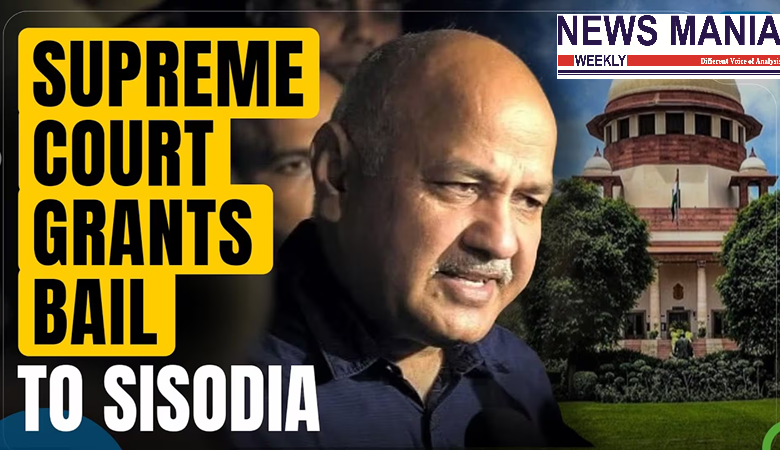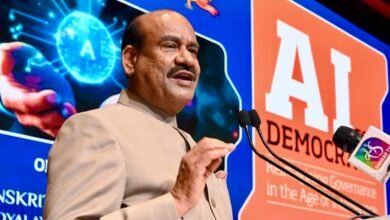Supreme Court Grants Bail to Manish Sisodia in Delhi Excise Policy Case

News Mania Desk/Agnibeena Ghosh/9th August 2024
In a significant legal development, the Supreme Court of India on August 9 granted bail to Manish Sisodia, a prominent Aam Aadmi Party (AAP) leader and former Deputy Chief Minister of Delhi. This decision marks a pivotal moment in the ongoing legal battle surrounding the alleged Delhi excise policy scam, where Sisodia had been in custody for over 17 months.
The Supreme Court bench, comprising Justices B R Gavai and K V Viswanathan, delivered the verdict after reserving their judgment on Sisodia’s bail pleas on August 6. The court emphasized that sending Sisodia back to the trial court would be a “travesty of justice,” indicating that prolonged detention without trial would be unjustifiable.
Sisodia’s legal troubles began when the Central Bureau of Investigation (CBI) arrested him on February 26, 2023, accusing him of involvement in irregularities related to the Delhi excise policy. Subsequently, on March 9, 2023, the Enforcement Directorate (ED) arrested him in connection with a money laundering case stemming from the same CBI FIR. Following these arrests, Sisodia resigned from his position in the Delhi cabinet on February 28, 2023.
Throughout the proceedings, Sisodia maintained his innocence and sought bail on the grounds that he had already been in custody for a significant period, yet the trial had not commenced. His defense argued that the delay in initiating the trial was unjust, especially considering the extensive period of pre-trial detention.
The Supreme Court took a critical view of the situation, questioning the CBI and ED about the timeline for concluding their investigations. The bench noted that there were a staggering 493 witnesses across the cases filed by both agencies. The court sought clarity on how long the trial would take, given the complexity and scale of the investigations.
In response, the legal representatives for the CBI and ED outlined that there were eight key witnesses in each case, refuting Sisodia’s claim that the delay in trial proceedings was attributable to the investigating agencies. They argued that the delay was not due to any fault on their part but rather due to the extensive nature of the investigations required to build a strong case.
Sisodia’s legal team had previously approached the Supreme Court after the Delhi High Court denied his bail pleas on May 21, which stemmed from a trial court’s rejection of his bail applications on April 30. On July 16, the Supreme Court agreed to hear Sisodia’s petitions, requesting responses from the CBI and ED to address the delays in the trial.
This ruling by the Supreme Court offers a significant respite for Sisodia, allowing him to be released on bail after a prolonged period in custody. However, the case is far from over, as the trial proceedings are yet to begin, and the allegations of corruption and money laundering still loom large.
As the legal battle continues, the spotlight remains on the Delhi excise policy case, which has drawn widespread attention due to its political implications and the high-profile nature of the accused. Sisodia’s release on bail marks a new chapter in this ongoing saga, with the trial yet to determine the ultimate outcome.






